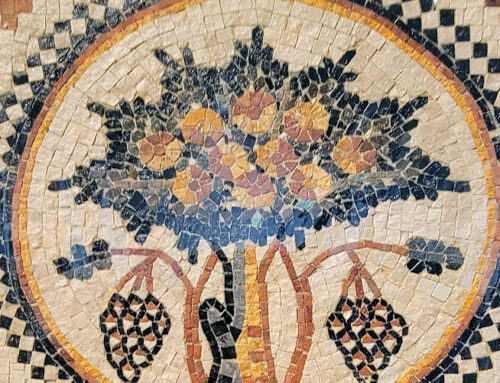With the highest per-capita income in the world, Qatar has a history of being associated with fine crafts and jewelry. Qatar has a strong tradition of arts and crafts, encompassing crafts that use purple dyes, intricate textiles, pottery, and perfume making. The craftsmanship of its artisans has been shaped by their unique geographical location – here the desert meets the sea, making it a trade epicenter between Europe and Asia.
Al Sadu Weaving
This traditional Bedouin hand-spinning and weaving is still practiced by the female artisans of Qatar. Al Sadu uses the easily available raw materials of the land such as sheep wool, camel and goat hair, and cotton to produce eye-catching and colorful textile displays of red, black, and white. The fabric is woven in geometric and vibrant patterns with tools called meghzal, el nul, and elmanshaza. The weaver sits on the ground, on top of the woven portion, as she continues forward. In the desert, the tow end bars of the loom would be held by stakes in the ground, but nowadays the doorframes of the weaver’s house are used to create tension. The gazelle horn is a special tool used to tighten the woven cloth and is passed down from generation to generation.
Embroidery
Needlework and embroidery are some of Qatar’s most long standing traditions as the women would sew their garments themselves with the absence of tailors in the country. To emphasize this, even as late as 1950 there were only three tailors in the country (all of which were for men’s clothing only). Embroidery techniques and designs are handed over from mother to daughter, generation to generation. One extraordinary technique is the an-naqdah, in which the artisans of Qatar incorporate gold and silver threads into the cloth to make dresses that are typically reserved for special ceremonies.
Gypsum Carving
Gypsum is produced locally and has the amazing trait of being able to withstand the most extreme weather conditions. Carved gypsum can be found on the windows and door frames of palaces, mosques, and wealthy homes. Smaller objects such as incense burners are also traditionally crafted from gypsum as well as shelves (rawashin) to display valuable objects.
Gold Jewelry
Jewelry is one of Qatar’s most ancient arts and crafts, including the production of anklets, necklaces, rings, earrings, pendants, and bracelets. Qatar has a history of pearl-diving off the Persian Gulf, and this element can be seen in their jewelry, along with gold and silver. Some traditional gold examples include the al mirtaesha (necklace adorned from chest to waist) and al tasa (head jewelry). Just as oil and gas is a main economic driver of big business, so was jewelry in the past world economy.
The culture in Qatar is unlike any of its Arab neighbors, with some of the most famous jewelry, needlework, and weaving in the world. The Qataris take pride in their handmade clothing and adorn themselves in gold and pearl jewelry from head to toe. Even their buildings are ornate, featuring gypsum carving on the facades and doorways.




